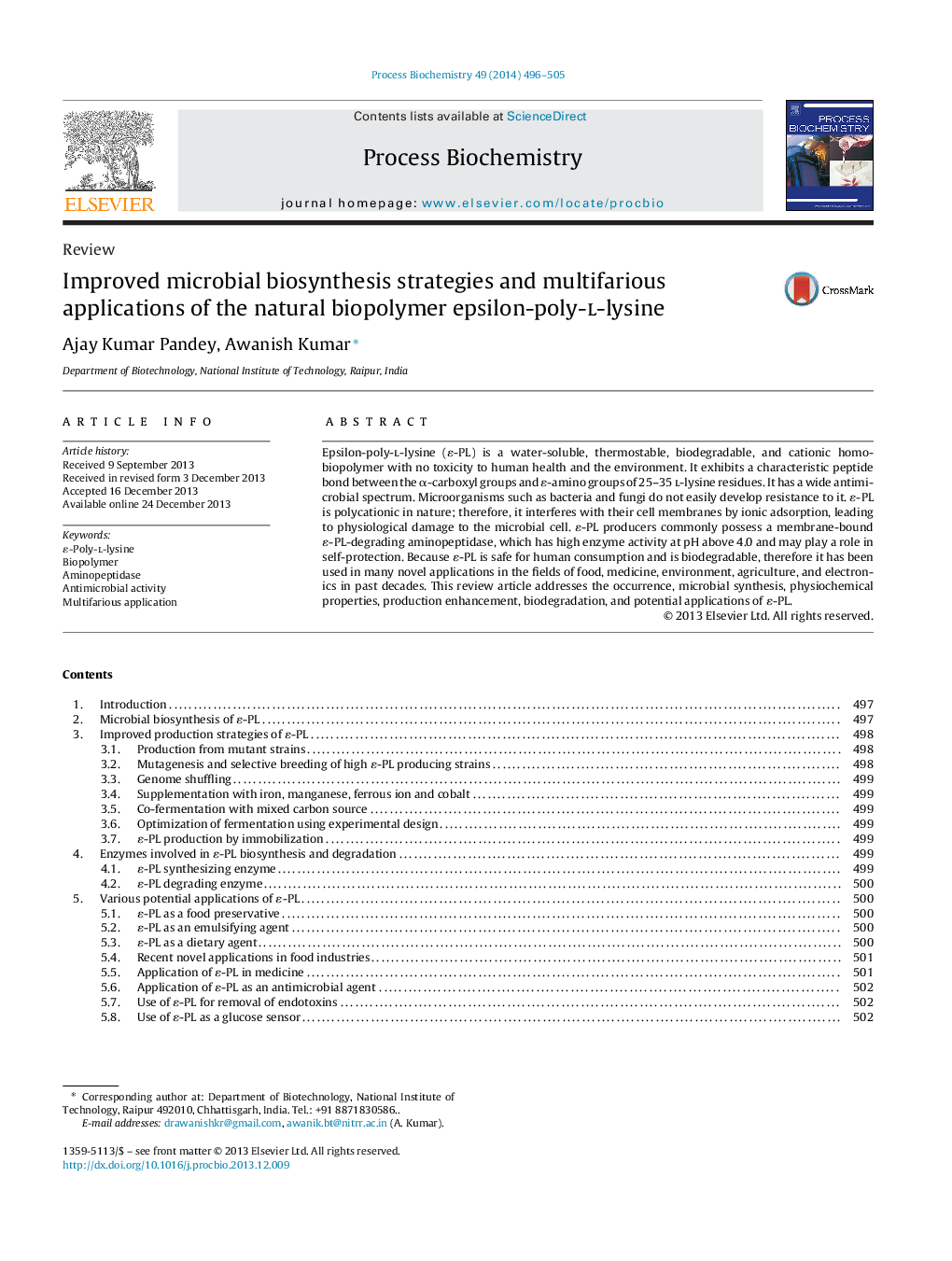| Article ID | Journal | Published Year | Pages | File Type |
|---|---|---|---|---|
| 10235463 | Process Biochemistry | 2014 | 10 Pages |
Abstract
Epsilon-poly-l-lysine (É-PL) is a water-soluble, thermostable, biodegradable, and cationic homo-biopolymer with no toxicity to human health and the environment. It exhibits a characteristic peptide bond between the α-carboxyl groups and É-amino groups of 25-35 l-lysine residues. It has a wide antimicrobial spectrum. Microorganisms such as bacteria and fungi do not easily develop resistance to it. É-PL is polycationic in nature; therefore, it interferes with their cell membranes by ionic adsorption, leading to physiological damage to the microbial cell. É-PL producers commonly possess a membrane-bound É-PL-degrading aminopeptidase, which has high enzyme activity at pH above 4.0 and may play a role in self-protection. Because É-PL is safe for human consumption and is biodegradable, therefore it has been used in many novel applications in the fields of food, medicine, environment, agriculture, and electronics in past decades. This review article addresses the occurrence, microbial synthesis, physiochemical properties, production enhancement, biodegradation, and potential applications of É-PL.
Related Topics
Physical Sciences and Engineering
Chemical Engineering
Bioengineering
Authors
Ajay Kumar Pandey, Awanish Kumar,
